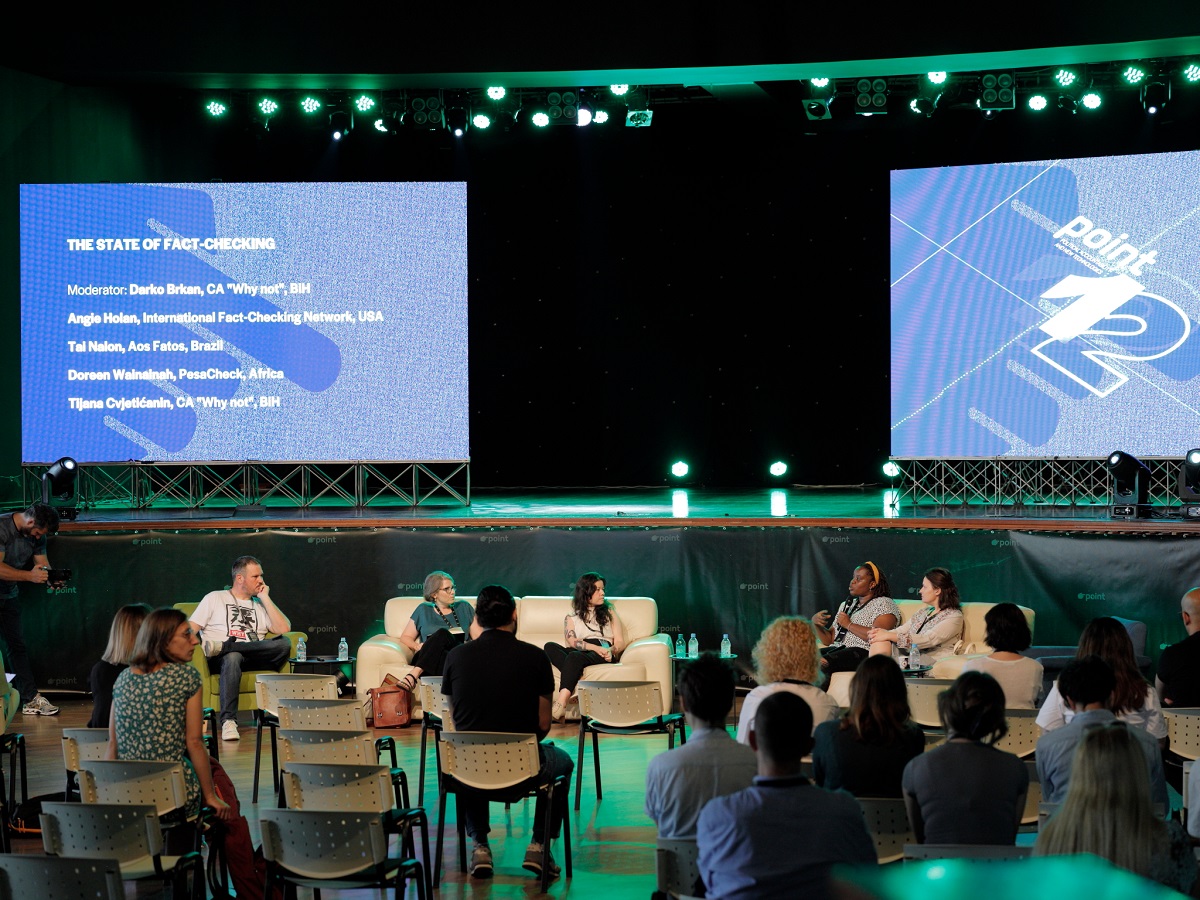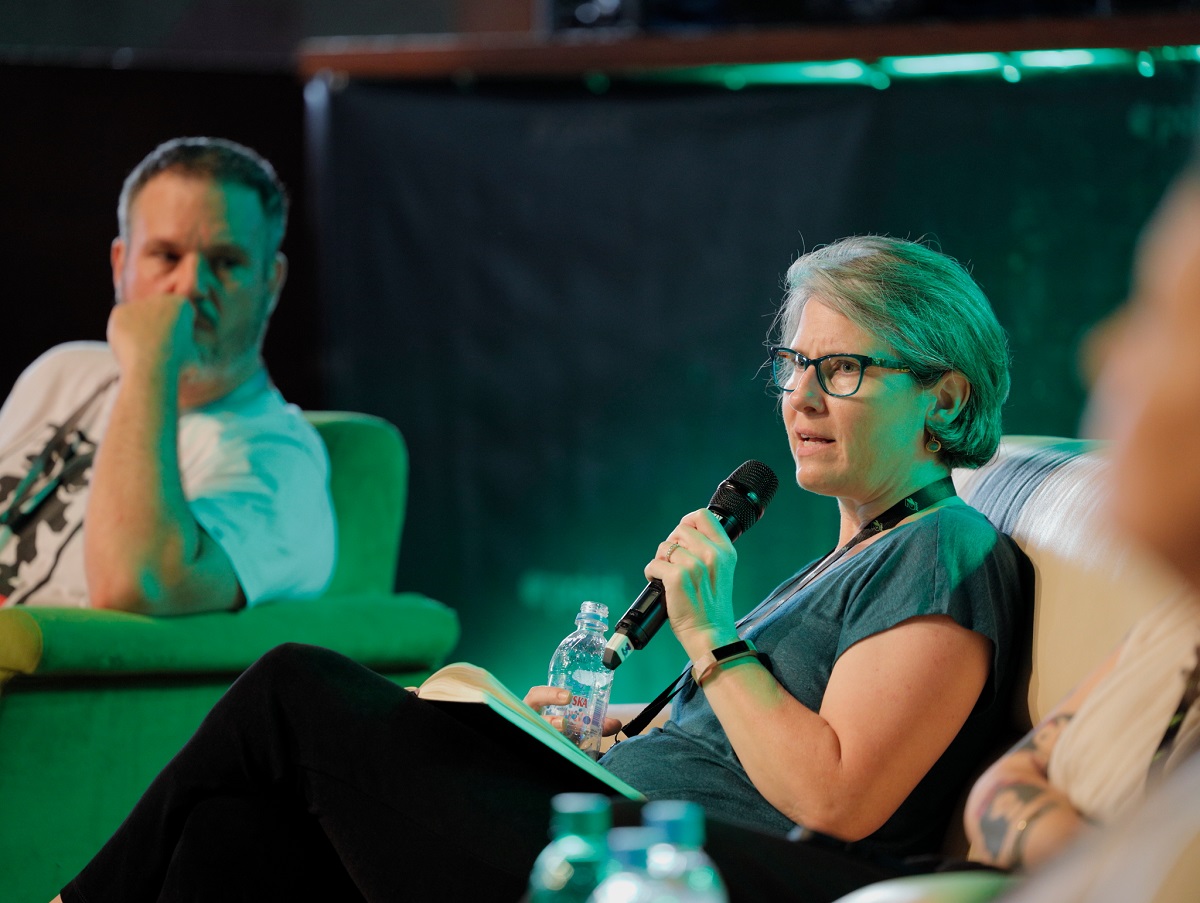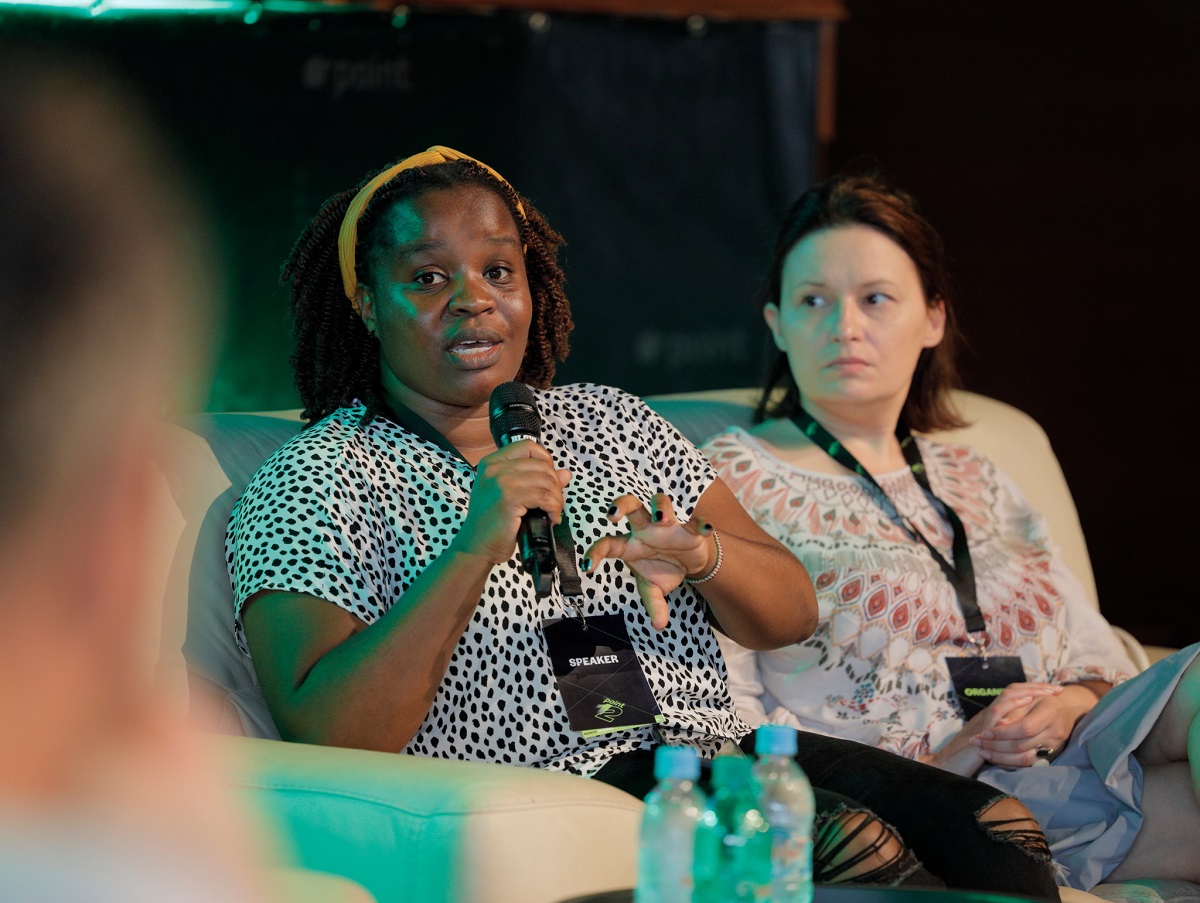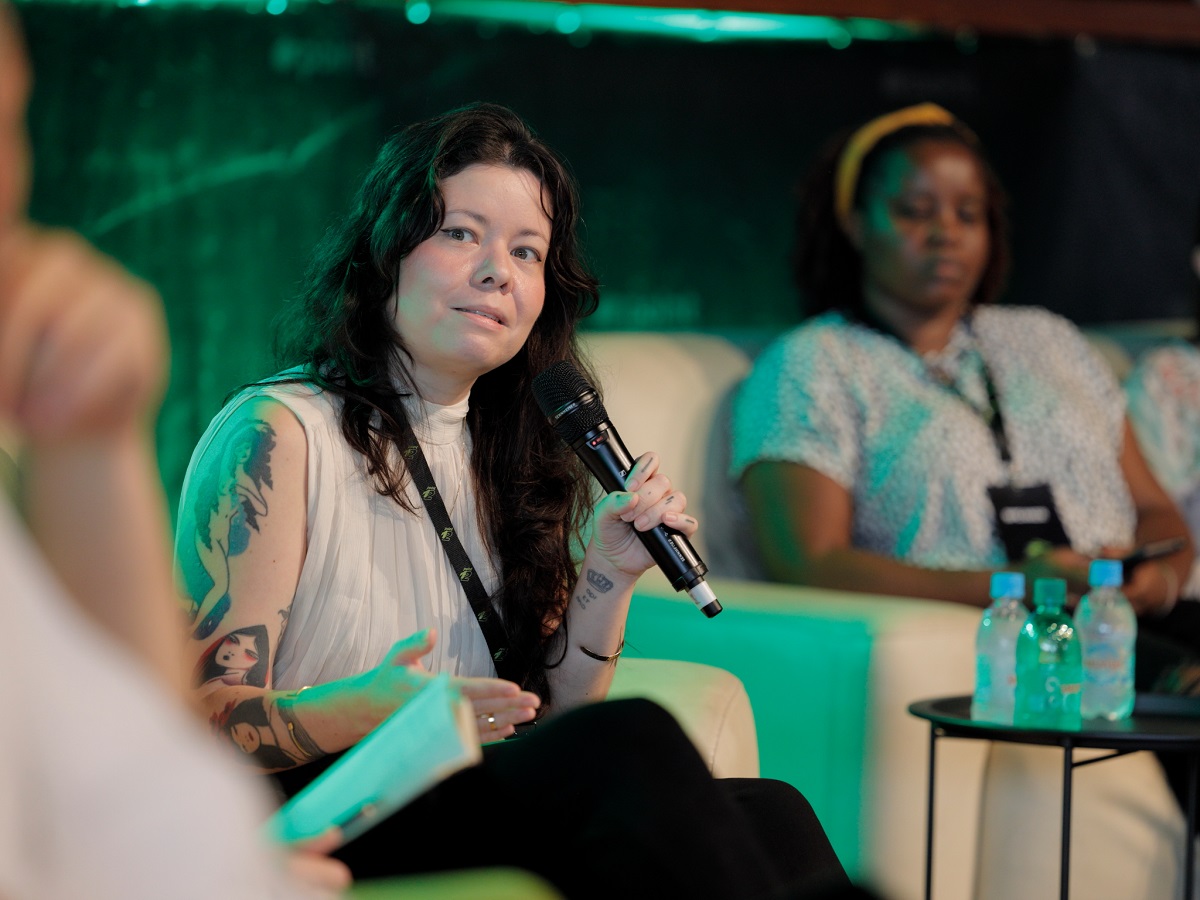The state of fact-checking: Where are we going?
The first panel on this year’s Point Conference facilitated a discussion on the state of fact-checking in the world right now, and the future of the global fact-checking community.

The panel “The State of Fact-Checking” was moderated by the president of CA “Zašto Ne” Darko Brkan, who opened by introducing panelists Angie Drobnic Holan from the International Fact-Checking Network (IFCN), Tijana Cvjetićanin from Zašto Ne, Tai Nalon from Aos Fatos and Doreen Wainainah from PesaCheck.
Darko posed the central question of the panel, which is where fact-checking is heading in the coming years. He asked the panelists to give their thoughts on what the biggest threats and the biggest opportunities are for fact-checking at the moment.

Angie Drobnic Holan said that the state of fact-checking right now is very complex and diverse. She sees the widespread acknowledgment of the danger of disinformation as an opportunity for fact-checking, and a lack of diversity of revenue for fact-checking organizations and the cultural loss of critical thinking as its greatest threats.

Doreen Wainainah pointed out that the shifting ideologies within different FC organizations is a threat to fact-checking, especially in a time of crisis. She added that the fact-checking community needs to find ways to deplatform and demonetize those behind disinformation.
Tijana Cvjetićanin pointed out two things that she sees as both a threat and an opportunity, the first one being institutions finally starting to pay attention to fact-checking and attempting to regulate the spreading of disinformation. She sees this as a positive thing, but also as something that could be a potential threat because of the blurry lines between regulation and limitations on the freedom of speech. The second thing is a boom of AI and Generative AI, which can create an opportunity for fact-checkers and the data they have been collecting, but also can lead to exploitation of their data, as well as an increase i the creation and dissemination of disinformation.

Tai Nalon pointed out that fact-checking has nuances in different countries and cultures. She talked about how in Brazil, her home country, fact-checkers have been having a hard time. As an opportunity, she sees that fact-checking has a good structure and format and a good case for training AI models that could potentially provide information for people. She thinks that fact-checkers could be perceived as source curators for those models.
Talking about the role of IFCN in the global fact-checking movement, Angie Drobnic Holan pointed out that it was initially meant to build a community and it’s still supposed to be about what the fact-checking community wants. The role of IFCN is to connect fact-checkers globally. She said that there are many different directions in which it could be taken now and emphasized that she wants to see that direction determined by the will of the community.
Doreen Wainainah pointed out the importance of regional fact-checking networks as well, especially for smaller grassroots fact-checking organizations.
Author: Nerma Šehović